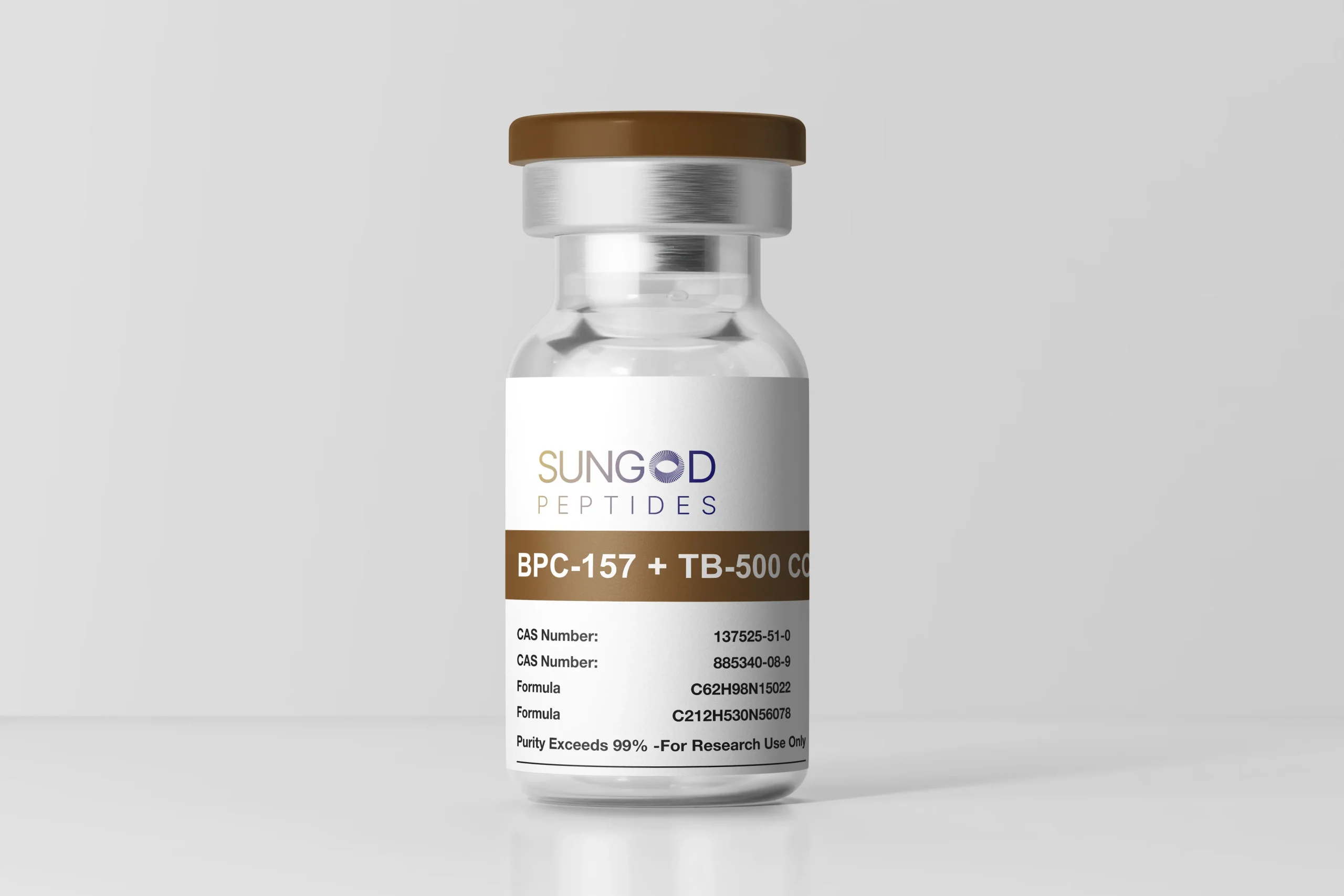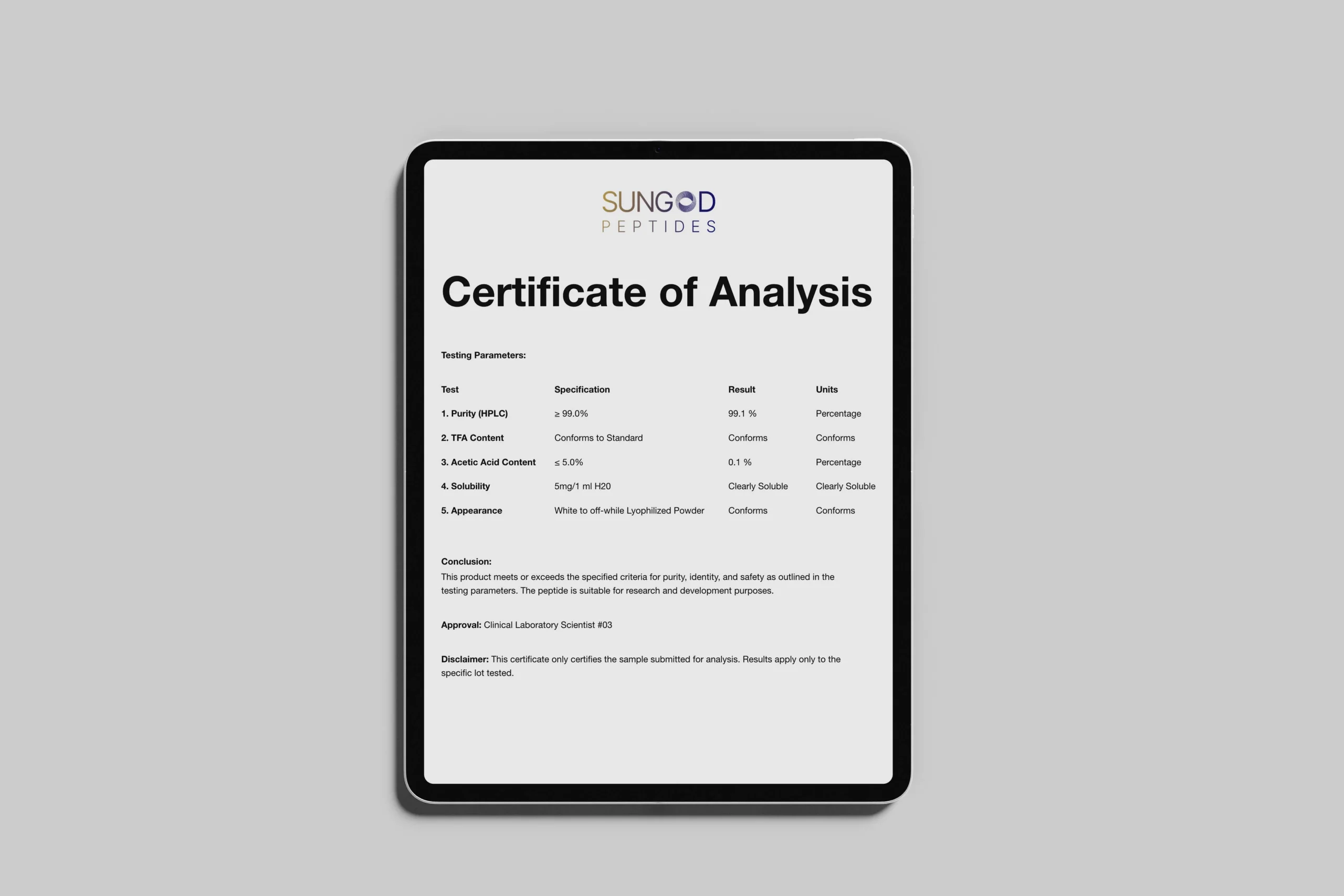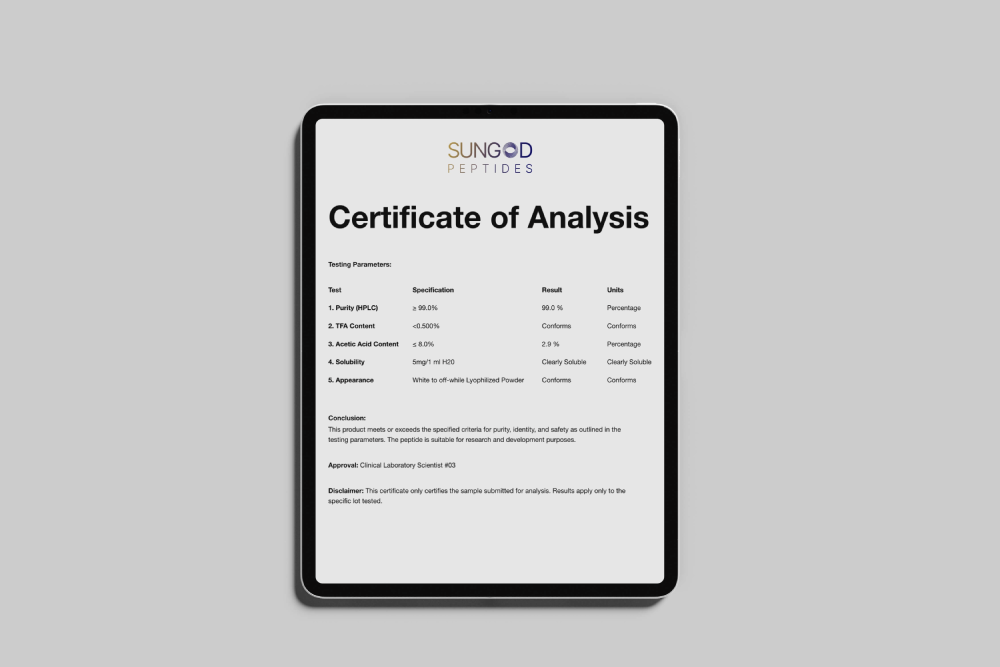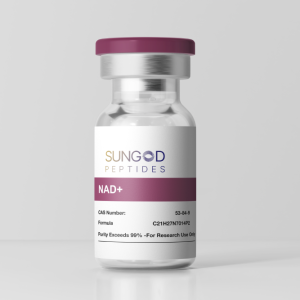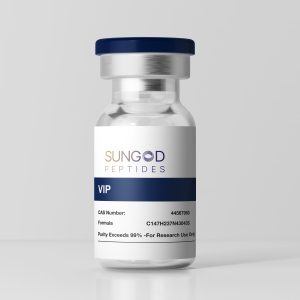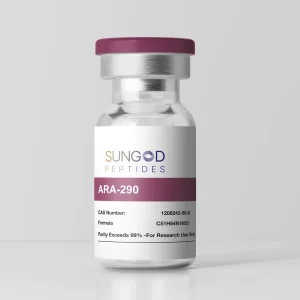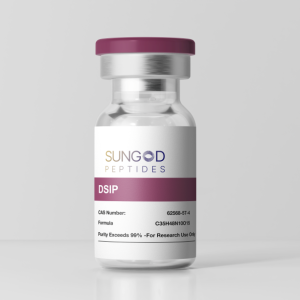BPC-157 + TB-500
$132.25
BPC-157 + TB-500
Islip
Pickup available, usually ready in 24 hours
3 Grant Ave.
Ste. B
Islip NY 11751
United States
+16316770030
BPC-157 and TB-500 are two peptides widely researched in regenerative medicine and sports rehabilitation. BPC-157 is a synthetic pentadecapeptide derived from a protein found in gastric juice, while TB-500 is a synthetic version of Thymosin Beta-4. Each peptide promotes healing through distinct mechanisms, with BPC-157 enhancing angiogenesis and reducing inflammation, and TB-500 facilitating cellular migration and tissue repair. Used together, they may offer a synergistic effect in supporting tissue regeneration, soft tissue recovery, and inflammation control.
Applications
- Musculoskeletal injuries (tendon, ligament, and muscle damage)
- Post-surgical wound healing and scar reduction
- Chronic inflammatory conditions (e.g., arthritis, Crohn’s disease, fibromyalgia)
- Neuroprotection (e.g., traumatic brain injury, neurodegeneration)
- Cardiac repair (e.g., recovery after myocardial infarction)
Mechanism of Action
BPC-157 – Angiogenesis and Inflammation Control: Promotes VEGF expression for blood vessel growth and downregulates pro-inflammatory cytokines.
BPC-157 – Growth Factor Stimulation: Activates fibroblasts and upregulates TGF-β for tissue repair.
BPC-157 – Gut-Brain Axis Support: May aid gastrointestinal and neurological health.
TB-500 – Cell Migration and Differentiation: Increases actin polymerization, enhancing cell movement to injury sites.
TB-500 – Anti-Fibrotic Effects: Reduces scar tissue by modulating CTGF activity.
TB-500 – Inflammation Modulation: Balances immune responses to support efficient healing
Key Research Studies
BPC-157:
Sikiric et al., 2018:
- Study focus: Healing and gastrointestinal tract lesions
- Key findings: BPC-157 supports angiogenesis and reduces inflammation
- Journal: Current Pharmaceutical DesignDOI: 10.2174/1381612823666170717165151
Sikiric et al., 2020:
- Study focus: Effects beyond gastrointestinal healing
- Key findings: Shows benefits in cardiovascular and neurological repair
- Journal: World Journal of GastroenterologyDOI: 10.3748/wjg.v26.i10.1082
Petrovic et al., 2017:
- Study focus: Tendon and ligament healing
- Key findings: Promotes tendon-to-bone healing and musculoskeletal recovery
- Journal: Journal of Applied Physiology
TB-500 (Thymosin Beta-4):
Goldstein et al., 2012:
- Study focus: Tissue repair and wound healing
- Key findings: Enhances cell migration, modulates inflammation
- Journal: Annals of the New York Academy of SciencesDOI: 10.1111/j.1749-6632.2012.06498.x
Badamchian et al., 2009:
- Study focus: Angiogenesis and tissue regeneration
- Key findings: Supports immune modulation and blood vessel growth
- Journal: Molecular and Cellular BiochemistryDOI: 10.1007/s11010-009-0035-2
Philp et al., 2007:
- Study focus: Dermal wound healing
- Key findings: Accelerates wound closure and reduces fibrosis
- Journal: The Journal of Investigative DermatologyDOI: 10.1038/sj.jid.5701082
Combined Use:
- Study focus: Combined effects on tendon/ligament healing
- Key findings: Anecdotal and equine studies suggest faster and more complete recovery
- Note: No direct human studies yet; suggested mechanisms are complementaryFor more research updates, you may search:
PubMed (https://pubmed.ncbi.nlm.nih.gov/)
Google Scholar (https://scholar.google.com/)
ClinicalTrials.gov (https://clinicaltrials.gov/)
Biological Effects and Benefits
Tissue Regeneration:
Both peptides promote faster recovery of soft tissues, especially muscles, tendons, and ligaments.
Angiogenesis:
BPC-157 enhances blood vessel formation via VEGF expression; TB-500 plays a minor role.
Anti-Inflammatory Action:
Both regulate inflammatory pathways to accelerate healing.

Reduced Scar Tissue Formation:
TB-500 modulates connective tissue to limit fibrosis.
Neuroprotection and Gut-Brain Support:
BPC-157 may aid the nervous system and gut-brain axis.
Cardiovascular Recovery:
TB-500 may support heart tissue repair post-injury.
Molecular Structure
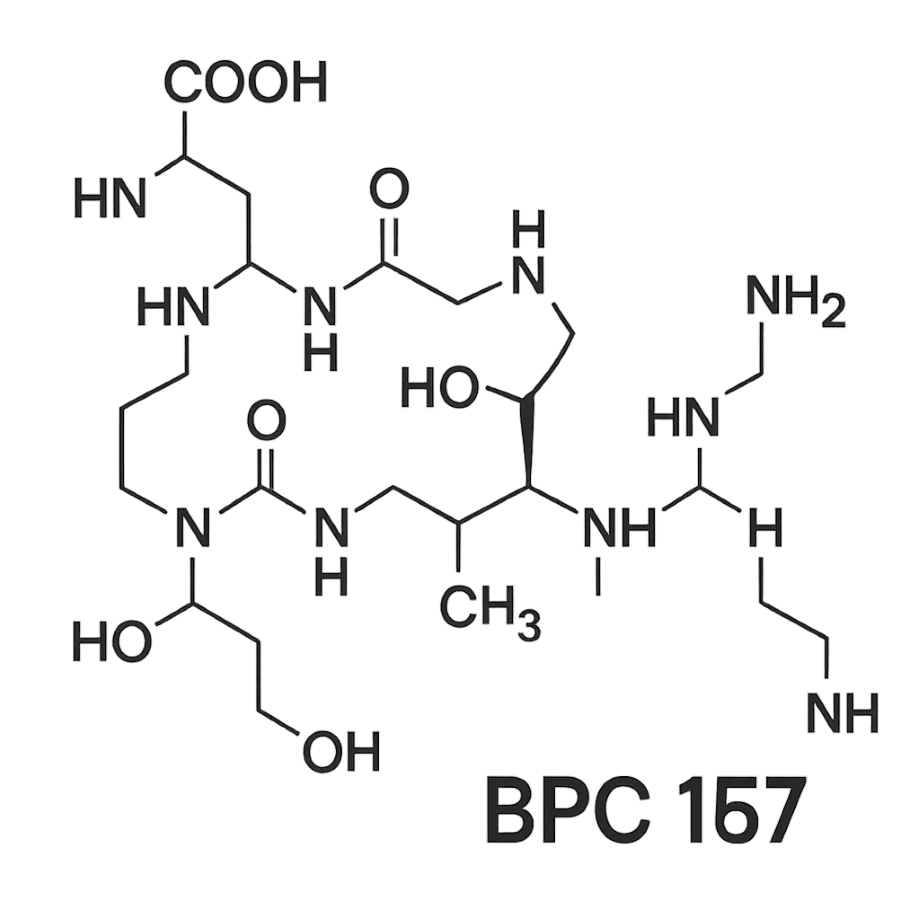
- BPC-157: Pentadecapeptide derived from a gastric protein
- TB-500: Synthetic peptide derived from Thymosin Beta-4
Specific sequences not listed in the document, but common literature identifies BPC-157’s sequence as Gly-Glu-Pro-Pro-Pro-Gly-Lys-Pro-Ala-Asp-Asp-Ala-Gly-Leu-Val.
